Sex with an introvert
11 things you know about sex if you're an introvert
Whether you’re an introvert, extrovert, or somewhere in between, you know firsthand that there are several differences between these personality types. Plus, based on a recent study, it turns out that these distinctions may also apply to sex.
During his TED talk, personality psychologist Brian Little discussed a study proposing that extroverts have more sex, on average, than introverts. Taking place in West Germany, the experiment used the Eysenck Personality Inventory (EPI) to figure out where participants fall on the personality spectrum. Then, they asked them about how much sex they have, with extroverted men saying 5.5 times a month and introverted men saying 3 times a month. As for extroverted women, they averaged 7.5 times a month whereas introverted women averaged 3 times a month (the same as introverted men, interestingly enough).
The main issue: there’s no way to tell if the participants were telling the truth (or if they were simply guessing instead of actually counting). Consequently, the results aren’t 100% accurate or comprehensive.
However, this study got us thinking and caused us to wonder: What are some specific things (some —not all!) introverts may experience when it comes to sex? Let’s discuss.
1. Initiating isn’t always a piece of cake.“[Introverts] might let friends or activities pick us, rather than extending our own invitations.” states Sophia Dembling, author of The Introvert’s Way. The same can apply to initiating sex, especially since introverts often prefer to think about it for awhile before they speak (or initiate).
2. Casual sex is sometimes a no-go.Many introverts thrive on genuine, longterm connections with fellow human beings, which typically isn’t synonymous with casual sex. In other words, according to Dembling, introverts “like to jump into the deep end.” Rather than devoting their time and social energy to someone they’re never going to see again, introverts commonly favor being around those they’ve cultivated an intimate, personal relationship with.
“Extroverts don’t have the same internal talking as we do,” explains Dr. Olsen Laney. “Most introverts need to think first and talk later.” When it comes to sex, this means that introverts are observing and dissecting everything that’s going on, which is just as tiring as the physical act itself.
4. Being away from your safe space is tough.While extroverts are habitually reinvigorated when they’re in social situations, the opposite is true for introverts. That’s why many introverts have some form of a safe space, a place they can go to when they need time to reenergize. That’s also why leaving this space (i.e. sleeping over at someone else’s home) can be a terrifying thought.
5. Sharing your safe space can be even more of a challenge.Speaking of safe spaces, letting someone in can be its very own obstacle.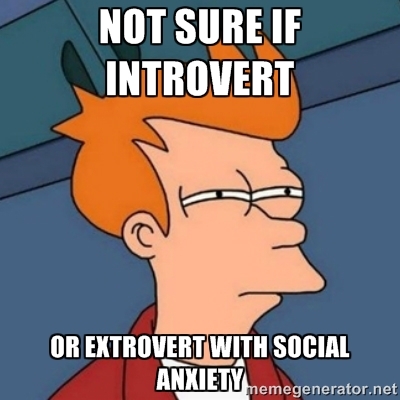 Sex is an intimate act. So is sharing your safe haven with someone else. When you combine these two things together, sex can become… complicated (especially if your safe space is your bedroom).
Sex is an intimate act. So is sharing your safe haven with someone else. When you combine these two things together, sex can become… complicated (especially if your safe space is your bedroom).
As Dr. Laney said, introverts often have an inner monologue going at all times. As for translating that mental speech into actual words? It’s basically like climbing a mountain. With that being said, sex can be hard to talk about for introverts, especially since such a discussion may involve a ton of small talk:
“Let’s clear one thing up: Introverts do not hate small talk because we dislike people,” reveals Laurie Helgoe, author of Introvert Power: Why Your Inner Life Is Your Hidden Strength. “We hate small talk because we hate the barrier it creates between people.”
7. You don’t want to have sex when you’re socially drained.If you’re an introvert, you know that being out and about will sometimes leave you feeling tuckered out. Moreover, you probably want to detach yourself from the outside world for some “me time.” One of the last things you want to do when you’re feeling this way? Have sex.
Moreover, you probably want to detach yourself from the outside world for some “me time.” One of the last things you want to do when you’re feeling this way? Have sex.
Little states, “Extroverts like to stand close, make eye contact, have a mutual gaze. When an extrovert meets [someone named] Charles, it rapidly becomes Charlie, Chuck, and Chuckles Baby. Introverts stay with Charles until they’re given a pass to be more intimate.”
Essentially, this means that foreplay can be a beautiful thing when it helps make an introvert feel comfortable leading up to sex.
9. Silence after sex isn’t weird.Dembling mentions that introverts often seek out a quiet environment when they need to recharge their social batteries. While silence after sex may seem awkward to some, introverts ordinarily relish in such a moment, since it allows them to restore their energy (and to process everything that just happened).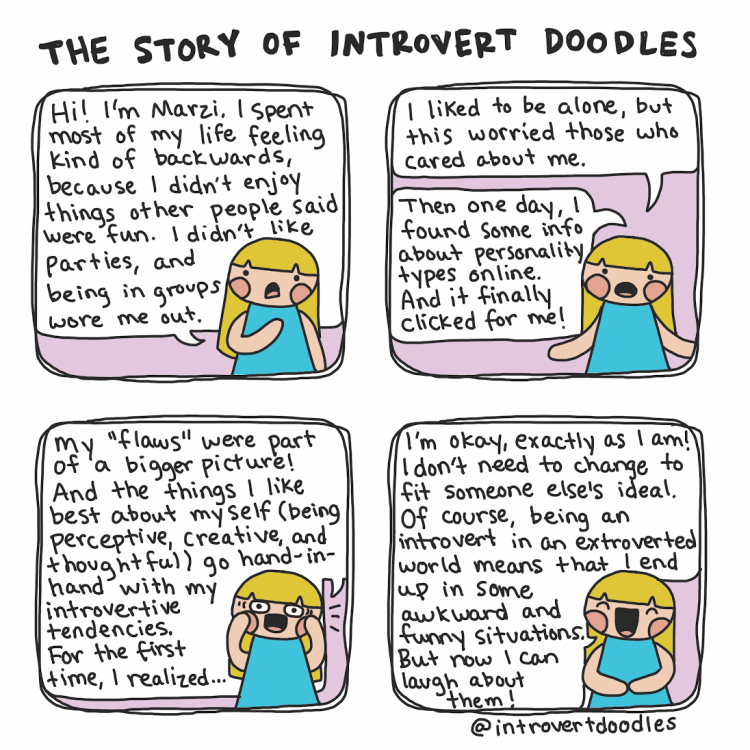
Aside from being known as great listeners, introverts also excel in one other area: “Introverts may prefer one-on-one interaction … we might enjoy large parties but want to sit and watch the action from the sidelines,” says Dembling. “Extroverts may interpret this as not wanting to have fun, but this observation is fun for an introvert.”
Since responding to your partner’s needs is an important part of sex, introverts may feel as though they’re working harder than their partner in this area – especially if they aren’t a fellow introvert.
11. You may get distracted.When they’re stimulated, introverts tend to become easily distracted – especially since there’s so much for them to take in, observe, and think about.
“Extroverts are commonly found to be more easily bored than introverts on monotonous tasks, probably because they require and thrive on high levels of stimulation,” wrote Clark University researchers. “In contrast, introverts are more easily distracted than extroverts and, hence, prefer relatively unstimulating environments.” (And sex isn’t exactly… unstimulating.)
“In contrast, introverts are more easily distracted than extroverts and, hence, prefer relatively unstimulating environments.” (And sex isn’t exactly… unstimulating.)
While these sex-related statements may not apply to all introverts – since each one of us is a unique human being with our own individualistic personality to boot – it is interesting to think about how sex and personality intermingle. Most importantly, no matter what your personality type, sex should be enjoyable, comfortable, and all about consent.
10 Things To Know About Sex With An Introvert – KitschMix
So, you heard that introverts were secretly the best girlfriends, and you successfully wooed one. Now what? Dating an introvert can seem like a daunting task, especially if you don’t fully understand what introversion means. Thankfully, though, we’ve outlined this handy guide of the top ten things you need to know about sex with an introvert. For best results, read through this guide before having sex with her for the first time – she’ll definitely appreciate it!
Sex is more exhausting for us.

Sex is an inherently exhausting activity already, but introverts have a particularly hard time recuperating afterward. This is because is physically and mentally draining, and if she feels even the slightest bit pressured into it, it’s going to be emotionally draining, too. Give her time, and she’ll warm up – it’s not a race to the finish.
It’s hard to talk about what we really want.
Many introverts have a hard time expressing what’s on their mind – even if their happiness depends on it. It’s not because we don’t like people, or because we’re too sensitive about what other people think of us. It’s because small talk feels like a barrier placed between people, and it’s super awkward to start a conversation with sex as its primary focus. Still, if we tell you we want or enjoy something, don’t take it lightly – we’ve thought it through before saying it out loud.
Intimacy comes
long before we do.Where extroverts tend to thrive on physical closeness first, introverts prefer to get to know someone deeply before we open ourselves up to them.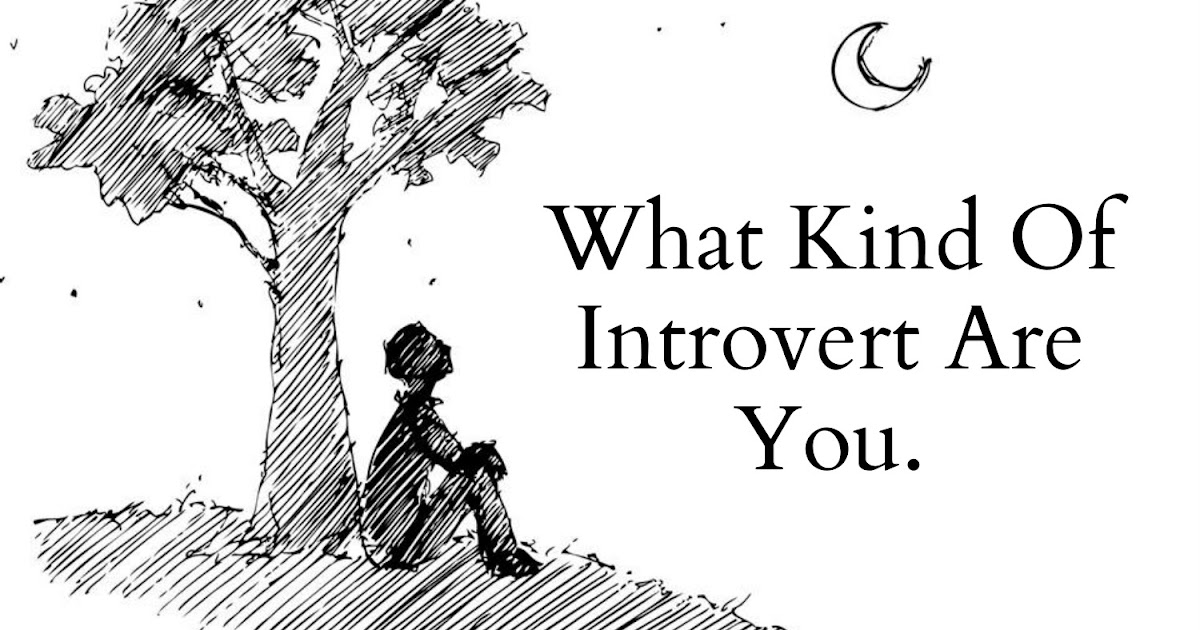 This means that we take a little longer to get close to, but once we do let you in, you better believe we’re excited about it. We need foreplay every time to help us get comfortable, and it’s always a good idea to ask permission before pressing forward.
This means that we take a little longer to get close to, but once we do let you in, you better believe we’re excited about it. We need foreplay every time to help us get comfortable, and it’s always a good idea to ask permission before pressing forward.
Observation is essential.
Introverts are naturally observant of the world around us – we’d prefer to sit on the sidelines watching others have fun than actually participate. It’s not because we’re boring, it’s because we take note of all the details. We’re responsive to our partner’s needs, and we expect a partner who can be responsive to ours, too. This attention to detail makes us excellent lovers, but if you aren’t equally perceptive, your introvert lover might get bored.
Distractions happen sometimes.
While no one is completely prone to distraction, it means something totally different to an introvert. Extroverts tend to be more easily distracted in environments that lead them bored and unstimulated, while introverts are more likely to wander off if there’s too much going on. Rest assured that, just because her mind isn’t totally present when you’re being intimate together, that doesn’t mean she’s not enjoying herself – it means she’s enjoying herself so much that her mind can’t focus on any one thing.
Rest assured that, just because her mind isn’t totally present when you’re being intimate together, that doesn’t mean she’s not enjoying herself – it means she’s enjoying herself so much that her mind can’t focus on any one thing.
Casual sex can be super awkward.
While most of the introverts I personally know have tried casual sex a time or two before, it usually isn’t “for” us. We’d prefer to form a deep emotional bond with someone, baring our soul before our body – and even that, slowly. We’d rather keep a few people extra close to us than have hordes at arms’ length, so we don’t like to spend a lot of time or energy on people we don’t expect to speak to again.
It’s hard for us to get things started.
Introverts are more likely to be satisfied with less sex than their extrovert partner, which means we’re probably not going to bring it up when we want it. Even when we do want it and it hasn’t been initiated yet, we may be reserved because we’re still thinking things over. Having a partner who can take charge of the situation is wonderful, and a partner who knows how to properly use teasing as a sexual tool is sure to please for years to come.
Having a partner who can take charge of the situation is wonderful, and a partner who knows how to properly use teasing as a sexual tool is sure to please for years to come.
Our fortress of solitude is
not for sex… Usually.Everyone needs their own space from time to time, but an introvert’s need for alone time is much higher than an extrovert’s. We prefer to have our own safe place to retreat to, somewhere quiet where we can recharge after stressful situations. Since sex is a pretty tiring event, we probably won’t want to stay long after – we need to get back to our comfort zone to rest up. If we bring you into our safe place, it’s important that you respect what it means to us – sharing our private spaces is very difficult for us.
We probably won’t be turned on after a party.
While extroverts may find the excitement of social situations arousing, introverts don’t get the same rush. The exact feelings may be different from one introvert to the next, but most of us would feel more comfortable if we had time to recharge in between.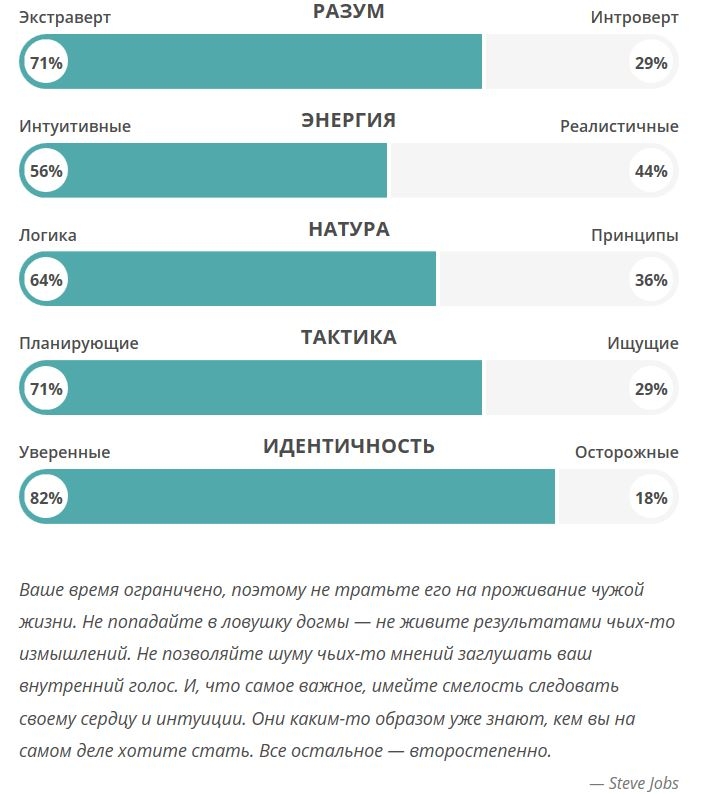 Many introverts prefer morning sex as our social batteries have had time to recharge – we don’t feel sexy when we’re drained from the day’s interactions.
Many introverts prefer morning sex as our social batteries have had time to recharge – we don’t feel sexy when we’re drained from the day’s interactions.
Sitting silently afterwards is 100% not weird.
As much as we value our alone time, introverts also enjoy spending quiet time with the people we need in our lives. Sometimes that means cuddling, once we feel comfortable sharing our space with you, but mostly it just means stolen moments of silence in between activities. We don’t need to fill the air with empty words – we’re comfortable just being near you, and that really is special.
Sexual characteristics of introverts/extroverts. L. Akimova - Internet club "Enlightened love"
Internet club "Enlightened love"
educational trust site
Fragment from the book Ph.D. Larisa Naumovna Akimova “PSYCHOLOGY OF SEXUALITY. Tutorial". The book is in our library "Love, family, sex and about ..."
Club: On our website, several articles are devoted to describing the signs of psychotypes:
Description of signs of socionic types
Human qualities to consider when choosing a partner.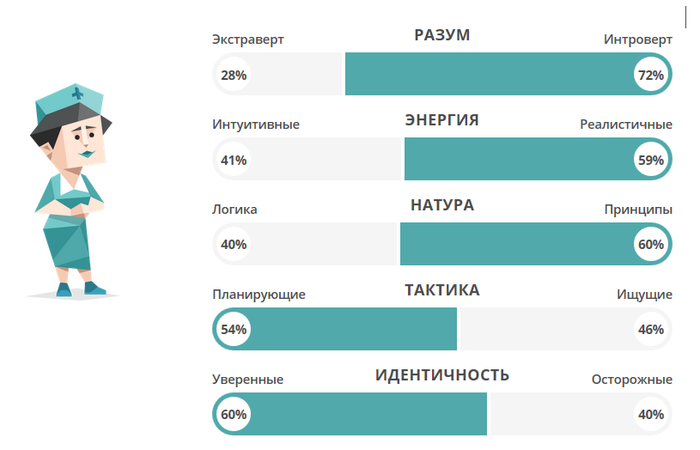 A. Augustinavichute
A. Augustinavichute
16 types in love
Female types
Temperaments in love. The most! The most!
Characters and recommendations. V. Meged
Sexual preferences of psychotypes
Sexual compatibility of socionic psychotypes. A.V. Bukalov, A.G. Boyko
Sexual characteristics of introverts/extroverts. L. Akimova
Descriptions of Socionic Types by functions and aspects of Model A.
Meaningful description of psychotypes
They complement each other. If they are studied together, everything becomes clearer and clearer.
In addition to significant gender differences, G. Eysenck notes the close dependence of the style of sexual life on the type of personality. Based on his theory of personality, the basic structural elements of which are extraversion-introversion and neuroticism, G. Eysenck suggested that extroverts and introverts, fundamentally different from each other in features of character and temperament, characterized by a different attitude towards sexual activity and various sexual behaviors.
Extroverts do not experience difficulties in contacts with the opposite sex and in the least degrees are subject to the influence of sexuality-inhibiting cultural religious and ethical prohibitions. They begin sexual intercourse before introverts life, have sexual contacts more often and with a large number of partners. For they are characterized by strong sexual desire, asexual excitability, pronounced sexual enterprise, high range of acceptability relative to technique and conditions for sexual intercourse. They attach great importance to erotic love play, quickly get used to sexual stimuli, and are oriented towards changing partners and situations. They have no difficulty in expressing their sexual feelings, they get more satisfaction from their sexuality and do not feel anxiety and doubt about it. Their sexual attitudes are open aggressive and most harmonious.
Reserved and inhibited introverts characterized by a more puritanical and orthodox attitude towards sexuality. They gravitate toward individualized, subtle and enduring relationships with an emphasis on on fidelity, devotion and tenderness in sexual union, which is often associated with psychological problems and difficulties.
They gravitate toward individualized, subtle and enduring relationships with an emphasis on on fidelity, devotion and tenderness in sexual union, which is often associated with psychological problems and difficulties.
The biological basis of neuroticism, according to the theory of G. Eysenck, is lability and increased activity of the nervous system. This causes a connection sexual behavior with a high susceptibility to fears and anxieties that leads to difficulties in interpersonal interaction. High performance in scale of neuroticism are combined with a conflict between a high level of sexual attraction, sexual excitability and significant severity of factors inhibiting sexual behavior. In this regard, persons with such characteristics are not can satisfy a strong sexual desire due to a pronounced sense of guilt and anxiety about their sexual activity, as well as various fears and fears that make sexual contact difficult.
According to S.S. Liebig's indicators of sexual satisfaction are lower than in all other groups. Sex often seems to them dangerous and disgusting, and their own attraction - abnormal. In a group of individuals with a high level of neuroticism, an interrelation was revealed between high scores on the scale of sexual neurotic conflict and the presence of sexual pathology: a decrease in sexual desire and anortasmia in women, premature ejaculation and erectile dysfunction in men.
Sexual behavior of 1555 GDR students surveyed in 1979-1980 is statistically related to test scores on the reduced introversion/extroversion scale according to the following parameters.
1. Extroverts, regardless of gender, due to their greater sociability and openness, are more active than introverts in establishing contact with people of the opposite sex.
However, introverted women have more than one sexual partner much less often than male introverts, who in this respect do not differ from extroverts. The traditional differentiation of sex and sexual roles looks like more significant than individual typological differences.
2. Extroverts show more love for partners than introverts, whose attachments are psychologically more contradictory and colored with anxiety and uncertainty. It is possible that introverts have high expectations here. about "true love".
3. Extroverted women are more likely than introverted women to have sexual relationships, experience orgasm and sexual satisfaction with a partner, but these the differences are small. Shyness and restraint that distinguishes everyday communication of introverted women and their behavior in labor collectives, in sexual relations with a beloved man often completely disappear. At male students a direct relationship between extraversion attitudes towards partner is observed only among religious people. Extroverts more often have sexual intercourse and consider themselves sexually more satisfied and happy. Introverts rate the intimacy of their sexual relationships lower but more often they talk with a partner about love and sexuality. Hence it appears that the nature of a love relationship depends not so much on introversion / extraversion partner, how much from other personality traits.
Hence it appears that the nature of a love relationship depends not so much on introversion / extraversion partner, how much from other personality traits.
4. Emotional openness of extroverts favors sexual excitability, talking about sexual topics, etc. However, this also depends from attitudes and cultural norms. The psychological difficulties of introverts sharply reinforced by religiosity. Due to the inability to openly discuss their sensory problems, except in the moral and aesthetic concepts of the Platonic love, religious introverts are more likely to experience disappointment in love, etc. d.
5. Much of the difference between introverts and extroverts is due to different upbringing and development in childhood and adolescence. More extroverts people who grew up in a liberal, sexually tolerant environment, while in The upbringing of introverts had more prohibitions and restrictions. Your first orgasm extroverts survived for six months, the first heterosexual contact - for a year, the first sexual intercourse is six months earlier than introverts. At the time of the survey, not yet 7% of extroverted and 14% of introverted women had coital experience and respectively 1 and 7% of men. The difference in sexual experience is especially great again among believers.
At the time of the survey, not yet 7% of extroverted and 14% of introverted women had coital experience and respectively 1 and 7% of men. The difference in sexual experience is especially great again among believers.
6. The effect of introversion/extroversion in men is most the first phases of the development of relationships - from acquaintance to the establishment of a lasting sexual partnership. In women, it lasts longer, spreading to relationship with a regular partner, spouse. This is again related to traditional sex-role differentiation.
These findings, made by German researchers, are very interesting in theoretical and methodological aspect. They show that the influence introversion/extroversion on sexuality has cross-cultural relevance, but that we are talking not only and not so much about constitutional, psychophysiological constants, how much about psychological attitudes and value orientations, the content and measure of effectiveness, which depend on socio-cultural conditions.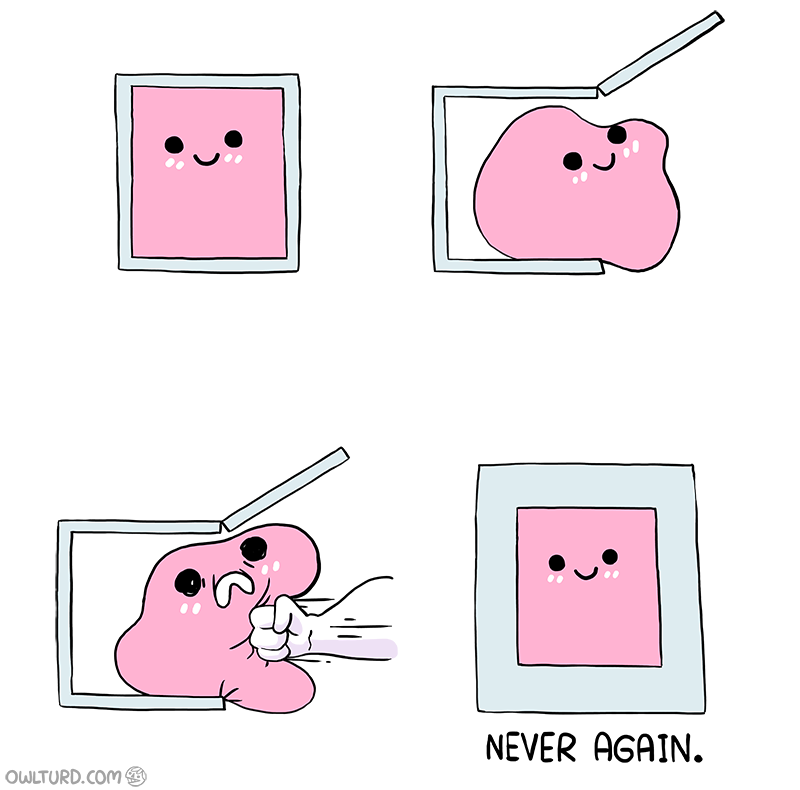
Sexuality is not just a psychophysiological reality, it is closely related with the norms of culture, giving it one meaning or another and creating a language, through which people express and shape their experiences.
Introversion\extroversion is an important typical characteristic, so more on that.
Extroverts and introverts in a team.
Questions:
Are these characteristics congenital or acquired?
What does Jung and others say about this?
Do their brains work differently, or what?
Initially, this concept was introduced by G. Jung, later his theory was expanded by G. Eysenck. According to Eysenck:
A typical extrovert is a sociable personality, aimed at developing contacts outside, a wide circle of acquaintances. Good-natured, cheerful, carefree and optimistic. For him, impulsiveness, irascibility, actions under the influence of the moment are typical.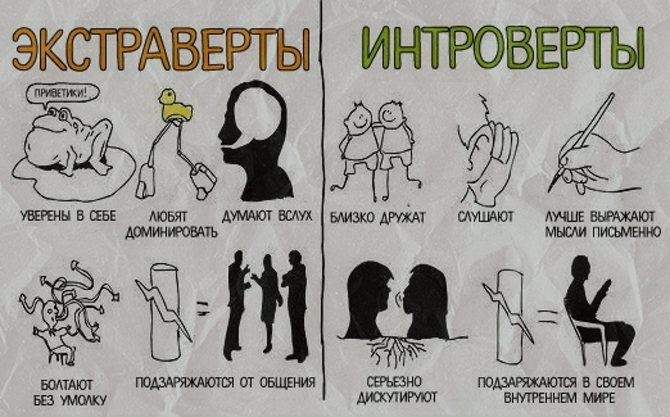 Prefers to act, has a tendency to aggressiveness. Optimistic, strict control of actions does not show, prone to risk.
Prefers to act, has a tendency to aggressiveness. Optimistic, strict control of actions does not show, prone to risk.
The typical introvert is calm, shy, introspective, even withdrawn. Restrained, distant from everyone except close people. Serious about making decisions, tends to plan and think ahead, rather than give in to sudden urges. He loves order in everything, highly appreciates moral standards. He controls his feelings, it is difficult to piss him off. Tends to be pessimistic.
On the origin of these modes of adaptation and the difference in brain activity:
Jung believed that the choice of adaptation occurs unconsciously, at an early age, and can be accidental. But Eysenck, on the basis of a series of electroencephalographic studies, proved that intro/extraversion are genetically determined, closely related to the levels of cortical activation of the brain. Eysenck uses the term "activation" to refer to the degree of arousal, changing its magnitude from the lower limit (for example, sleep) to the upper limit (for example, a state of panic). He believes that introverts are extremely excitable and, therefore, highly sensitive to incoming stimulation - for this reason, they avoid situations that affect them excessively. Conversely, extroverts are not sufficiently excitable and therefore insensitive to incoming stimulation; accordingly, they are constantly on the lookout for situations that can excite them.
He believes that introverts are extremely excitable and, therefore, highly sensitive to incoming stimulation - for this reason, they avoid situations that affect them excessively. Conversely, extroverts are not sufficiently excitable and therefore insensitive to incoming stimulation; accordingly, they are constantly on the lookout for situations that can excite them.
More about the difference in brain activity:
According to scientific data:
Extroverts are characterized by superficial reflection, while introverts are characterized by excessive reflection.
Extroverts work better in groups than when isolated from each other, and introverts perform better in isolation. Extroverts work best in the beginning, and then their effectiveness decreases. Introverts, at first, are inferior to extroverts, but then the efficiency of their work increases, and only at the end it decreases to the level that was at the initial stage of work.
Extroverts perform better on synthetic tasks, while introverts perform better on analytical tasks. At the same time, integral indicators of intelligence (tasks of a figurative and verbal nature) do not correlate with extraversion - introversion. Still, it is believed that introverts are better trained than extroverts, although there are no differences between them in terms of intelligence. Obviously, this difference in performance is due to the greater diligence and obedience of introverts.
Extraverts more successfully perform activities related to the reception and processing of information of indefinite content, and less successfully - associated with the reception and processing of certain information, and vice versa.
Extroverts are not prone to consistency, logic, scientific and analytical thinking, while introverts are characterized by the opposite picture. The latter prefer theoretical disciplines, while extroverts prefer practical ones.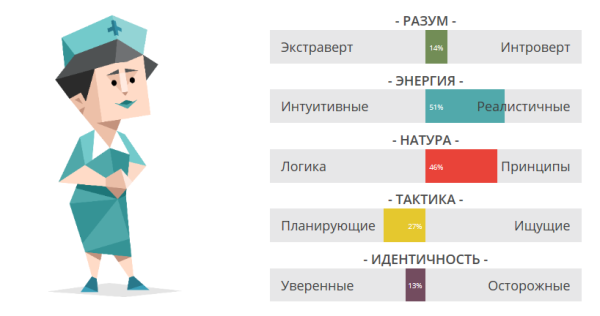
- Is it possible to change an introvert into an extrovert? How will this affect his personality?
You can't fix it completely, and you shouldn't try. You can teach him communication skills, reduce his fear of people, increase his competence in this area. This will make life easier for him, but the value of his inner world will always remain higher for him than what is outside. Breaking a personality is a laborious and thankless task, the trauma from this will remain forever. It's like retraining left-handers to the right hand - they always remain "retrained left-handers", they will never become right-handed. And part of the energy that could go to creativity or other activities characteristic of left-handers or introverts will be spent on processing the trauma of "rework". It is much more productive to develop those strengths that you already have and compensate for the deficit that interferes with interaction than to “turn” a person inside out.
- What tasks are ideal for both? What environment is needed for the psychological comfort of an introvert?
For extroverts, tasks involving people are ideal. Client business, management, everything where you need a productive interaction with someone. Introverts are suitable for things related to solving problems, creating strategies, planning, and solitary mental activity. They need privacy. They are more conservative, preferring familiar surroundings and intimate settings with few people—they conserve their energy and prefer to stay put rather than move back and forth. The best of what they do is always carried out on their own initiative, by their own efforts and in an individual way.
Client business, management, everything where you need a productive interaction with someone. Introverts are suitable for things related to solving problems, creating strategies, planning, and solitary mental activity. They need privacy. They are more conservative, preferring familiar surroundings and intimate settings with few people—they conserve their energy and prefer to stay put rather than move back and forth. The best of what they do is always carried out on their own initiative, by their own efforts and in an individual way.
Introverts are more suitable for those professions (and more often they are chosen) where monotony is expressed and where punctuality is required. Extroverts are more successful as salespeople and managers. Moreover, the more freedom is given to extrovert managers, the more success they achieve.
- Can a leader be an introvert, and under what circumstances?
A successful leader does not necessarily have to be oriented only outward. According to statistics, 40% of managers are introverts. Among the most famous of them are Abraham Lincoln, Bill Gates, Warren Buffett.
According to statistics, 40% of managers are introverts. Among the most famous of them are Abraham Lincoln, Bill Gates, Warren Buffett.
Undoubtedly, they all developed the necessary skills to communicate with people, but also used to the maximum what nature gave them.
Why can an introvert be a very effective leader?
The main reasons are:
Introverts listen better.
They love solitude, which gives them the opportunity to think better and deeper about the issue.
They are masters of preparation, able to take into account all the nuances and plan everything carefully.
They constantly challenge themselves, expect more from themselves, which makes them constantly explore new areas and develop.
They think in depth, not in breadth, they look at the root of the issue, they understand it at all levels.
They can be very calm, cold-blooded, which is especially important in situations of emergency, crises, acute problem situations, and they know how to "infect" people around with this.
Babievskaya Elena - [email protected], psychologist, psychotherapist, director of the "Psychological Center on Pyatnitskaya", +7 (495) 951-54-54.
The topic "psychotypes in love and sex" on our website is dedicated to:
Sexual compatibility of socionic psychotypes
Classification of psychosexual types.
16 types in love. J. Tewson, O. Kroeger.
Mysteries of sexual compatibility. V.V. Meged.
Sexual characteristics of introverts/extroverts. L. Akimova
Sexual preferences of psychotypes.
Dualization and sex: about the problem of the optimal choice of a life partner. A. Shiyan
Mutual help and intimacy in dual couples. A. Grechinsky, T. Pedan.
Women's secrets. First sexual experience: Stories from real women. Vit
Sigmund Freud about love.
Positions in sex from the point of view of... psychology.
Sex positions with illustrations have received a lot of attention in
All articles, books and videos about sex, orgasms (M and F) and their significance.
Renewal of sex in marriage. E. Pushkarev
Determine the type of sexual constitution. There are three types of human sexual constitution - strong, medium and weak.
Determine your sexuality: permissiveness, fulfillment, neuroticism, satisfaction/dissatisfaction, disappointment, shyness, chastity, aversion to sex, excitability, libido.
Propensity for impersonal sex, pornography, physical sex, violent sex.
You can test Sex and the average woman (or the average man). G. Eysenck, G. Wilson
Letters to the Club about sexual problems in bed are posted on pages:
Marriage crises. Sex in marriage.
Modern sex and marriage - myths and reality. V.G. Taktarov, R.V. Beleda
This article is from the socionics of love section.
There are many books in our library (which can be downloaded for free) dedicated to the socionics of love:
Sergey and Irina Beletsky “How to use socionics to fulfill your desires.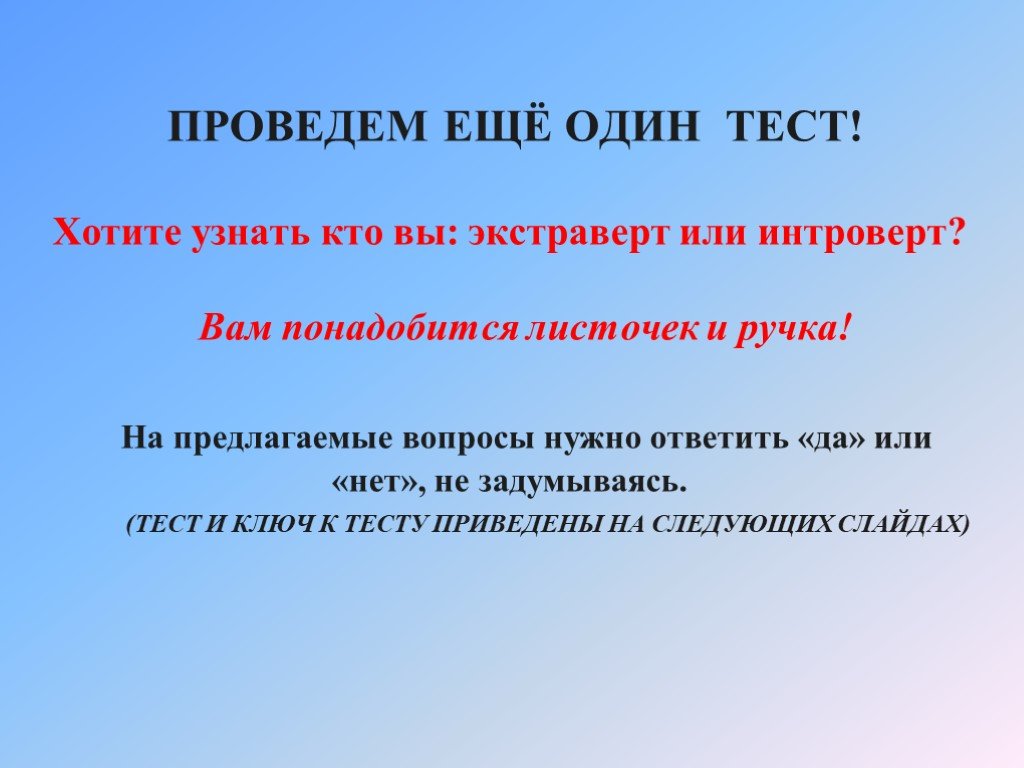 7 secret steps"
7 secret steps"
Lyubov Beskova, Elena Udalova "The way to a man's heart and... back"
Anatoly Grechinsky, Tatyana Pedan Find harmony in life. Socionics about a person»
Viktor Gulenko "Description of socionic types and intertype relationships"
Victor Gulenko "Criteria of reciprocity"
Viktor Gulenko "Life Scenarios"
Otto Kroeger, Janet Tewson “16 Ways of Love. How 16 Personality Types Determine Your Potential in Love
Otto Kroeger, Janet Tewson “Types of people. 16 personality types that determine how we live, work and love
Tatyana Prokofieva “Socionics. Algebra and Geometry of Human Relations"
Yuri Simonov, Alexander Nemirovsky "How to look for a life partner"
Vera Stratievskaya "How to make sure we don't part"
Vladimir Stukas, Elina Untilova "Psychological typology that works"
Ekaterina Filatova "The Art of Understanding Oneself and Others"
and others
Sex life and its dependence on personality type
In search of answers to questions why something does not work out, as well as in unsuccessful attempts to change themselves, people often forget about the key factors that affect behavior and life in general.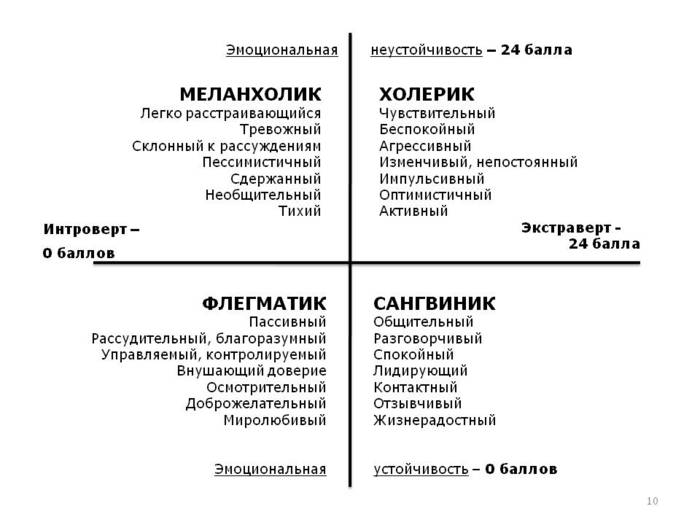
Content of article
- 1 Personality typology
- 2 Introverts
- 3 Extroverts
- 4 Differences between men and women
“Personality types” is a common phrase from the field of psychology that everyone once heard, but few delved into the essence. But it is on the type of personality that the way of thinking, the model of behavior and sexual life depends.
Personality typology
The concepts of "introvert" and "extrovert" are very polar, that's why you don't always want to classify yourself as a member of a particular group without a further prospect of "trying on" opposite roles.
In sexual life, from time to time, each person has the features of both an introvert and an extrovert. "Pure" optimists or pessimists are very rare. In fact, most people are ambiverts (combine features of opposites).
It is foolish to deny the relationship between the style of sexual life and the psychotype of a person. It is generally accepted that bright, positive and assertive extroverts always get more in sex than modest and closed introverts.
Sex is just one aspect of life in which extroverts tend to be artistic and experimental. Just like introverts, they show conservatism and calmness in all areas. That is why people living or working in the same area, connected by a similar occupation and way of life, often differ so much from each other.
Introverts
According to the classification of personality types put forward by psychologist Carl Jung, an introverted person is always calm, balanced, reserved and somewhat pessimistic.
The constitutional portrait of an introvert can and should be adjusted depending on the degree of development of certain qualities. It is not possible to change the psychophysiology, but using the techniques of raising the mood, developing communication skills, the qualities of an extrovert can be instilled in a shy and closed person.
Introverts are little influenced by external factors. It is difficult to bring them to violent emotions and surprise them with something, because such people tend to calculate in advance all the options for the development of events. Spontaneity and frivolity are not about them at all. In work and family life, introverts value loyalty, stability, responsibility, and attention to detail.
Spontaneity and frivolity are not about them at all. In work and family life, introverts value loyalty, stability, responsibility, and attention to detail.
The sex life of introverts is predictable and measured. Often they have a religious type of thinking, because the change of sexual partner is extremely rare and is perceived very painfully. Unsuccessful experiments in sex can provoke emotional and physical closeness.
It is difficult for an introvert to relax during intercourse. This happens because mentally a person “ties up” many psycho-emotional factors to sex: a sense of guilt and responsibility, shame, obligation. Because of this, getting an orgasm often becomes a problem.
Before moving into a phase of intimacy and sex, an introvert will analyze many times whether a partner is right for him. Such a person perceives the fact of intimacy as a prerequisite for a long and trusting relationship.
Sexual intercourse itself is perceived not as a physical process, but as a unique sacrament, a demonstration of the highest level of spiritual intimacy. And, of course, this process must be accompanied by preludes and many romantic attributes.
And, of course, this process must be accompanied by preludes and many romantic attributes.
Extroverts
Unlike introverts, this psychotype is characterized by extreme impulsiveness and adventurism. Extroverts look at life with optimism, often not justified. At work, they quickly follow the instructions of the boss or find a way to avoid them.
Not prone to deep analysis before making decisions, do not like to delve into themselves for a long time. Easily go on adventures, always open to new experiences. Extroverts have a very wide social circle, they quickly converge with people, because they know how to find an approach to everyone. They almost painlessly adapt to any situation, and actions and decisions depend on internal sensations, and non-traditional, cultural and religious dogmas.
The sphere of sexual life is of great importance for such a person. From there he draws energy and inspiration. An extrovert will willingly agree to experiments, moreover, he will offer to try something new. He is not restrained in the manifestation of emotions, he knows how to completely disconnect from external factors and get maximum pleasure from sexual intercourse.
He is not restrained in the manifestation of emotions, he knows how to completely disconnect from external factors and get maximum pleasure from sexual intercourse.
Extroverts need sex more often than introverts. Changing a sexual partner will not become a strong emotional shock, but, on the contrary, activates the desire to develop and pump one's sexual attractiveness.
When approaching the opposite sex, an extrovert pays attention to sexuality and quickly falls in love.
Just as quickly, a partner may not like it, but before that they will have a bright joint pastime with a lot of juicy details. It is not difficult for an extrovert to open up in sex, especially since he thinks, first of all, about his own comfort.
Extroverts are more likely to cheat than introverts. Due to the vibrant and varied sex life, an extrovert knows how to deliver pleasure to a partner and does not hesitate to openly discuss his sexual desires.
Differences between men and women
It is generally accepted that men and women are subject to the influence of personality type on their sexual life to varying degrees. Extroverted women clearly inform their partner about their preferences even before the start of a serious relationship.
Extroverted women clearly inform their partner about their preferences even before the start of a serious relationship.
They are satisfied in their sexual life, because they are sure that their interests will be taken into account. If something does not go according to the script, such a woman will decide to leave the relationship. Psychologically, she often dominates her partner.
An extroverted man at the first stage of a relationship is able to adapt to his partner and will begin to show his character only when he gets tired of playing by someone else's rules. Most likely, in a long-term relationship with an introvert girl, he will have permanent conflicts due to differences in views. But an active and self-confident experimenter-extrovert will be an excellent match for such a man.
Introverted ladies, if they have already entered into a sexual relationship, they will put up with the demands of their lover. In extreme cases, they will try to find a compromise.














